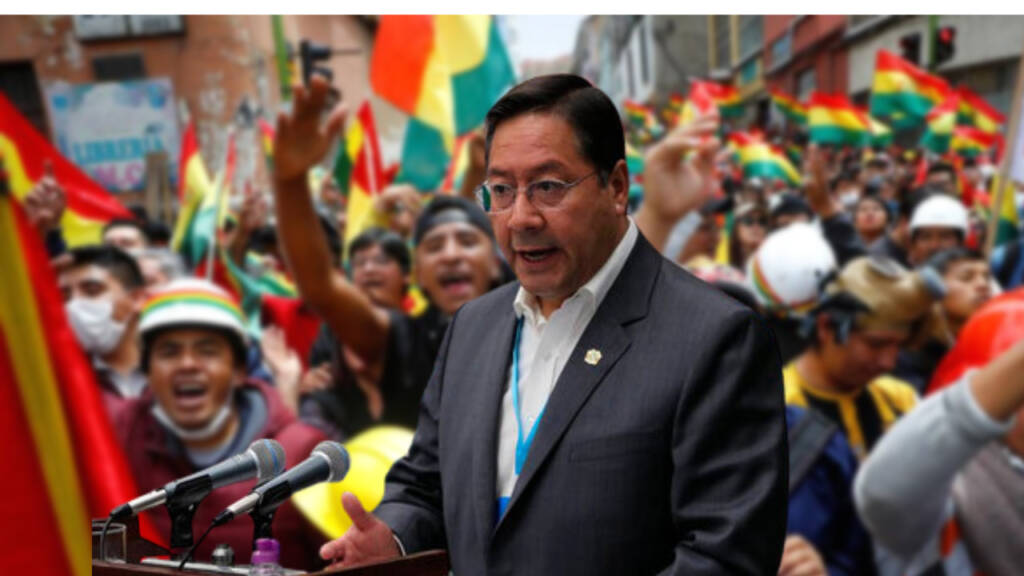Bolivia Coup: Bolivia, a country in the center of South America has seen waves of political unrest. The instability has weakened the country’s democracy.
The violence has been linked to a number of factors. Foreign interference emerges as the number one factor. Now, another attempt is being made to thwart Bolivia’s democracy. Will Bolivia be able to save itself from the clouds of violence?
Clouds of violence
María Nela Prada, Minister of the Presidency of Bolivia, has dismissed the idea of providing amnesty to those who have been jailed due to their involvement in the US-supported coup of 2019. Right-wing figures have warned of action if no amnesty is issued.
After the military ousted the democratically elected government of Evo Morales in 2019, Bolivia was plunged into a dire situation of political oppression.
Prada said, “I state clearly and firmly that there will be no amnesty, that there will be no impunity. There are no political prisoners, and that has to be made clear; Those who have committed crimes have to face justice.”
Rómulo Calvo, the leader of the Pro Santa Cruz Civic Committee, had declared that President Luis Arce has until February 25th to give amnesty to all of the prisoners who are being held in pre-trial custody. Santa Cruz is Bolivia’s commercial center and its Civic Committee is made up of the region’s biggest industrialists and landowners. Calvo also demands the release of ex-governor of Santa Cruz, Fernando Camacho. Camacho is being tried for his role in the 2019 Bolivia Coup.
Read more: Guyana and India: Ready to Take the World By Storm
Camacho was a frequent attendee of protests in 2019 against Evo Morales government, holding a bible and wearing a rosary. The Bolivian state attorney declared in December that Camacho’s detention was related to the overthrowing of Morales in 2019. Camacho has been charged with bribery and corruption too.
Waves of Violence
After Evo Morales was removed in a US-backed coup, Jeanine Anez became the President of Bolivia. However, in the 2020 elections, Morales’ party made a stunning comeback and Luis Arce became the President.
Opposition groups in Santa Cruz have been organizing ‘civic strikes’, basically plotting conspiracies to overthrow the democratically-elected government of Bolivia.
Since President Arce was elected in late 2020, the Civic Committee has used the strikes to protest against the government and destabilize the economy, a tactic which has been used several times since 2019.
The most recent civic strike happened at the end of 2022. The strike was close to the time of the national census, which protestors were demanding be moved up sooner. Political analysts say that it was a ploy to try and take down the government again, like they did in 2019.
Read more:Brazil President Lula moves closer to recognize Venezuela’s Maduro
The most recent arrest of the leader of Santa Cruz and organizer of the 2019 Bolivia Coup , Fernanda Camacho, has caused the right’s mobilizing power to dwindle.
In response to his arrest, the Civic Committee was unable to instigate a civic strike or cause the city to shut down, but rather, they only managed to organize a few violent protests in the center of Santa Cruz. The remaining parts of the city were unaffected.
The US-dominated OAS and UN, alongside the right-wing, are attempting to turn Latin America and the Caribbean back into a colony of the north. It is not an exaggeration to state that wealthy land-owners wish to acquire even more land, and revive the colonial master-slave relationship in Bolivia, Peru, and Brazil.
Neoliberal and liberal conservative politicians aim to obtain political power so they can sell off natural resources to foreign companies, without any benefit to the people of Latin American countries.
However, the Right may have gone too far on many occasions, ultimately creating an increasing feeling of resentment towards the disruptions to everyday life and employment, even among people who were originally in support of their right-wing resistance. Therefore, the protests and strikes in Bolivia will certainly not succeed this time.
https://www.youtube.com/watch?v=pszgYpdcoxA
